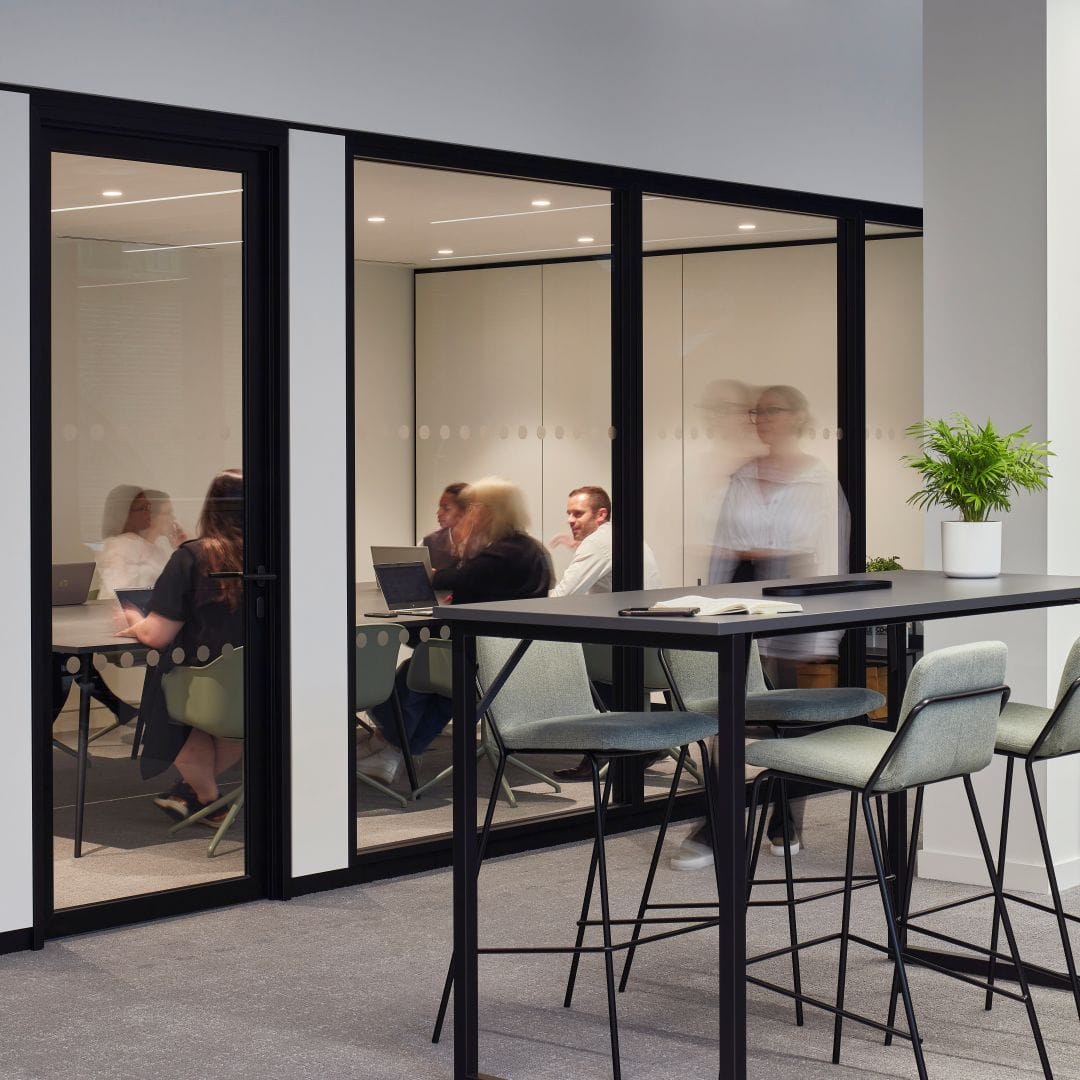

Finding an office can be a journey of a thousand questions – whether it be price point versus square footage versus location. But what is most important?
When searching for new office space, each factor depends on the current and future needs of your business.
If your company is geared towards rapid growth, you may need space to grow into. But if your business serves a particular sector, then a specific location may be a top priority for you.
Our buildings are based in key locations across London, and many of our customers benefit from being part of a Campuses – meaning access to shops, restaurant and leisure facilities at your doorstep.
To help unpack the process, we share five key considerations when viewing office space.
1. Can you be flexible with your office space?
All businesses want to grow, so it is important to consider the length of time you’ll need to commit to, taking into account any growth plans within that time.
You may also want to chop and change the design in the event of a rebrand, or perhaps add new break out spaces to facilitate more collaboration if your headcount grows.
While being economical on price in exchange for smaller square footage may seem like the smart move now; if you are expecting business to boom, do you have the space for new staff?
Paying out for unused space may feel uneasy, but the cost of having to relocate your offices to accommodate your staff can represent a greater financial headache in the longer term.
Opting for a more flexible office space with room to grow may be a good solution to the potential problem. At Storey, we work with our clients to understand and expand their current workspace, so it’s suited to their needs.
2. Does it meet your IT needs?
While open plan spaces and modern aesthetics help with team collaboration, if your office does not have good tech capabilities, then you may feel like you’re stuck in the dark ages.
Not every business will need hyper-fast fibre broadband and a temperature-controlled room to accommodate IT server banks, but yours might.
While most office providers can advise you on capabilities, it is better to have this conversation ahead of committing to anything. Installing new technology can be expensive at best, and not permissible under your lease at worst.
Choosing an office with the right IT infrastructure can smooth operational friction and ensure your quality of service does not dip during a move.
We fully control access and connectivity for all our Storey buildings ensuring your business stays connected, your data is protected and your guest access is managed. Plus, we have dedicated teams if things don’t go to plan.
3. Get to know your landlord
The first step on your hunt for an office is knowing who is operating your building. Make sure you thoroughly research the leasing offer and look out for client testimonials, plus check their wider reputation.
It is important to feel confident you are opting for a trusted provider. This is likely to save you time and cost further down the line in the event of maintenance and repairs.
Not all leasing arrangements are made equal. Different leasing arrangements have different responsibility for repairs – and sometimes, in rental office spaces, you may be expected to cover the cost rather than your landlord.
If you have a relationship with your landlord, it may be easier to manage any maintenance or damage in your office – meaning you may be able to negotiate any costs to be covered.
At Storey we own all our buildings, providing you with a better service and greater flexibility. We don’t have lease liability which overall gives us greater flexibility as a business.
4. Get to grips with what you are paying for
While lease agreements can appear lengthy, it is important to have a good understanding of exactly what comes with the price.
Often, office set-ups come with different costs included. Always ask whether the lease includes utilities, furniture, and equipment – some places may charge extra for this or expect you to provide your own, adding to operational costs.
Some landlords may bundle all these together, so make sure you know what to expect when it comes to moving in and paying out.
Our leases are exceptionally flexible, helping your business grow with us.
Within our buildings, we have Storey Club available in our Paddington Central and Broadgate locations – meaning customers benefit from access to meeting rooms, event spaces and lounges.
5. Which type of office suits your needs best?
A final key consideration – ask yourself which type of office best suits your needs. This may be a managed or serviced office, or perhaps a more flexible arrangement which puts the benefits of both into practice.
Put simply, serviced offices tend to be set-up and ready for business to walk into – providing a typically agile working arrangement with shorter term leases.
On the other hand, managed offices expect longer leases but allow you greater freedom in how you will set up your space and present your business to visiting clients.
At Storey, we blur the lines between the two. Giving you flexibility around the size of your office, the length of your lease and how it looks, all in one hassle-free package. You can read about the differences in more detail here.
The bottom line
Choosing the right office for you is a process that can take a while.
It is important to weigh up the pros and cons carefully, as well as looking ahead to the future trajectory of your business – whether it be in the year ahead, five year or 10-year term.
For more information on our offer, and why we are different, visit our ‘This is Storey’ page here.